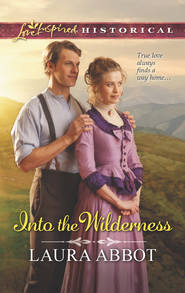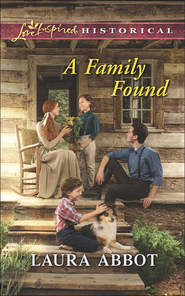По всем вопросам обращайтесь на: info@litportal.ru
(©) 2003-2024.
✖
The Gift of a Child
Настройки чтения
Размер шрифта
Высота строк
Поля
With a flash of inspiration, she remembered the sack of marbles one of the soldiers had given her father in gratitude for his recovery from malaria. Rose led Alf to a chair, then slowly opened the bag. Twenty or more marbles of varying colors nestled inside. She quickly retrieved several cereal bowls, then showed him the contents of the bag. Withdrawing one agate, she said, “Green,” and placed it in a bowl. Next, she found a blue marble, and mouthing the color, she put it into a second bowl. She handed a black marble to the boy, who studied it intently. Rose pointed to the first bowl. “Green?”
He shook his head vehemently.
“Blue?”
“Not blue,” he said, pulling a third bowl toward him.
“Black,” Rose instructed, saddened to think no one had taught him his colors and unsure how much English he’d heard from his parents.
Just before twelve, the back door opened, and Ezra stepped inside, raindrops pooling at this feet. He took off his broad-brimmed hat, shook it and hung it on the peg inside the door. “I feel like Noah.”
Alf looked up. “Noah. Sett told me. Big boat.” Then he went back to sorting marbles that Rose had found for him and repeating the colors under his breath.
Ezra took off his spectacles and wiped them on a kitchen towel. “The marbles. What a good idea.”
Rose wanted to tell him about her morning, about the hint Alf had given concerning what might have happened to him and his mother, but before she could begin, her father thrust out a letter he must’ve picked up at the post office. “Mighty big news,” he said. “It’s from your Aunt Lavinia.”
My dear Ezra,
As you know, Henry died this past autumn, and it has been difficult to adjust to his absence. I continue with my social engagements and charity work here in St. Louis, but my heart is no longer in them. It was our custom to summer in Newport with dear friends, but I find that prospect daunting without my husband. In casting about for an alternative, I have hit upon a solution. Other than the months Lily lived here with us, I have scarce spent any time with the only family remaining to me—you, Rose and Lily. And now little Mattie, my great-niece!
Through the auspices of a Kansas agent, I have let a house in Cottonwood Falls for the months of June through November and should arrive sometime during the first week of June.
I know this may seem sudden and presumptuous, but I am curious about the West and about my family’s circumstances. I will wire you with details of my arrival by rail. My maid will be accompanying me, and I trust someone can meet us at the depot.
Ever your affectionate sister-in-law,
Lavinia
Rose was stunned. Cottonwood Falls, Kansas, was a far different place than the cultured environment of St. Louis. She scanned the letter again. “Does Lily know?”
He shook his head. “When the weather clears, we will go to the ranch to tell her.”
“Papa, I don’t mean to be rude, but it is difficult to picture the woman I remember from my childhood and that Lily has described spending time on the prairie.”
“I agree,” her father said. “But she is your mother’s only sister, and we will do our best to make her welcome. Your mother would’ve wanted that.”
Just then Alf dropped a marble that clattered across the floor. “Yellow,” the boy hollered, leaving the chair to collect the elusive marble.
“Yellow?” Ezra said. “Yes, sir. What a bright boy you are.”
Rose handed the letter back to her father. Aunt Lavinia had always been a distant, though imposing figure to her, moving in a sophisticated world beyond Rose’s comprehension. Lily had thrived in that world for a time until its glitter faded. But for herself? She could not imagine any point where she and her aunt might find something in common. She already felt intimidated and Lavinia hadn’t even arrived.
Then her breath stopped. Alf. What would her aunt think of the boy? Would Lavinia Dupree, like the Brittens, condemn their family for taking him in?
She drew a deep breath and lifted her chin. She would do whatever was necessary to shield Alf from criticism. Slowly she became aware of her father’s compassionate scrutiny. As if he’d read her mind, he simply said, “Reserve your judgment, Rose.”
Chapter Four (#ulink_f1a68fe5-1dcc-5723-a518-ebe786222be7)
Seth stood in the back of the Grange Hall late the following Wednesday afternoon, studying the restive crowd congregated there. All eyes were on Sheriff Jensen. Rumors concerning cattle rustlers, thieves and isolated bands of renegade Indians operating in east central Kansas had stirred concerns among the county citizenry.
Caleb, standing beside him, punched him in the ribs. “We need a plan. We can’t be leaving Lily, Mattie and Sophie unprotected. Until we’re assured the problem has been addressed, one of us or a hired hand should be near the houses at all times.”
Before Seth could agree, the sheriff stepped forward and signaled for quiet. “Lots of information has been going around, some of it accurate and some, pure rubbish. I’ve called this meeting to tell you what we know and what you can do to help. I believe the recent incident where somebody stole tack out of Hank McGuire’s barn is an isolated case. However, it suggests a need for vigilance on all our parts. From time to time, we have men, some desperate, some organized, crossing this region and bent on no good.”
“Gangs, you mean,” the owner of the general store called out.
The sheriff clenched his jaw. “Now, Horace, that’s a bit of an exaggeration. Certainly some folks down on their luck make their way through the territory. Three fellas were apprehended last weekend in Council Grove, suspected of robbing stores. Unpleasant as this news is, most vagabonds are homeless and looking for work. Yes, some gangs operate throughout the West, but none have been spotted in Chase County.”
“It’s a bit hard to tell the difference—drifter or robber,” muttered Chauncey Britten, the undertaker.
“No worry which one when they finally need your services,” one wag shouted to the enjoyment of the crowd.
Sheriff Jensen again signaled for attention. “Here’s what I propose—that those living in town be alert to strangers and inform my office when anyone you don’t know rides into town. As for those of you living beyond town, instruct your hands to keep an eye out and be ready to notify your neighbors if you see something unusual. What we don’t want is folks going off half-cocked and creating trouble.”
A beefy, red-faced farmer jumped up. “So we’re not supposed to protect our property?”
“That’s not what I said,” the sheriff responded. “Caution is warranted, but take action only if you feel your property or family are imminently threatened. If at all possible, before you do anything, notify us.”
“Ride eight miles to you while some renegade roams my ranch?”
“Git off your haunches, Jensen, and git rid of these varmints!”
The cries from the audience were taking a toll on the sheriff, who was a better lawman than speaker. As the hubbub continued, Seth felt Caleb stiffen beside him and knew his brother was about to intervene. Sure enough, Caleb raised his hand and cut a swath toward the front of the room, much as he must have led a cavalry charge. He strode right up on the platform. Seth followed closely behind to support his brother. “Folks,” Caleb said in a commanding voice, “this is just the kind of mob reaction that’ll get us in trouble. Let’s back off and think about this.”
“The situation calls for a united approach,” Seth added.
Amid some grumbling, the men reluctantly took their seats, and Seth heard one say to his companion, “Might as well listen to the Montgomery boys. They generally make sense.”
When the group calmed down, Caleb continued. “We all know Lars Jensen is a conscientious sheriff. Nothing has happened here to cause us to mount some aimless posse. Be reasonable. Many of you have been residents of Chase County for several years or more.”
Seth picked up the thread. “Haven’t we been satisfied with our law enforcement? Lately we’ve had one incident. No physical harm was done, and the guilty party didn’t loiter in these parts, I suspect because we have a no-nonsense sheriff. Now, then, let’s do as Jensen advises. Be watchful, notify him of any concerns and do our best to protect our womenfolk and children from rascals, but also from baseless fears.”
The meeting closed with general agreement and a few apologies to the sheriff.
Afterward, as Seth and Caleb rode side by side toward home, Seth thought about Caleb’s leadership. Although his military service had resulted in horrific experiences, it had also matured his younger brother. When their paths diverged, Seth gave voice to his observations. “Caleb, you did a good thing back there. We don’t need mob thinking.”
At first, he thought Caleb hadn’t heard him, but then his brother answered him in a grim voice. “No, we don’t. I’ve seen what a mob can do. Nothing uglier.” He flipped the reins to steer his mount to the right. “Good night, Seth.” Then he trotted off, without a backward glance.
Seth watched his brother until he was out of sight. There was much he didn’t know about what Caleb had endured during his military career. It was painful to remember the eighteen-year-old who had ridden off to war with the enthusiastic patriotism and naïveté of youth. Seth continued to feel guilty that he had not joined the conflict, but his role at the family gristmill in Missouri had been critical.
Supplying the troops was a form of service, too, but it had spared him from the brutality and bloodshed in which his brother had, perforce, been engaged. The wonder was that Caleb still had his feet so firmly planted on the ground.
Although Caleb had told him few details of his army experiences, from things Lily had said, Seth believed his brother had spoken more openly with her and that such confidences, coupled with Lily’s understanding, had been redemptive.
The setting sun lighted the trail back to the ranch. In a way, he envied the closeness of Lily and Caleb. It seemed they could talk about anything. They must have deep trust in one another, he reflected. He himself wasn’t much of a talker. Would there ever be a woman in whom he might confide his guilt concerning the war? His concern for Sophie? His sorrow at the death of his mother?
Not likely.











